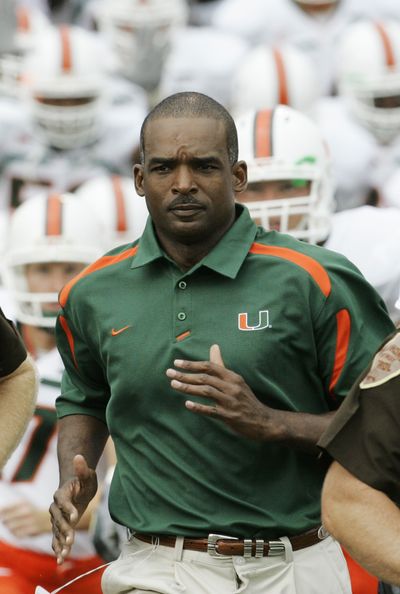Hire standards
BCA’s latest report card draws concern

INDIANAPOLIS – The Black Coaches and Administrators group is looking for creative ways to get more minority football coaches into college jobs.
They’ll consider almost anything – more input from college presidents in coaching searches, NCAA help to measure diversity in hiring, advice from Tony Dungy, maybe even a lawsuit.
On the day the BCA released its latest hiring report card, executive director Floyd Keith and others acknowledged that while they have made some progress, the ultimate measuring stick – hires – continues to lag.
“We are looking at every opportunity we can to advance the cause,” Keith said on a conference call Wednesday. “I think the important thing for us is the part about hires, not interviews. We’ve hit the interview mark. Regardless of the direction, we’ve got to make the numbers work and they have to be better.”
When the BCA started compiling these report cards in 2004, it contended that if searches became more inclusive, hires would follow.
Charlotte Westerhaus, the NCAA’s vice president for diversity and inclusion, said 85 percent of the 32 Division I schools looking for coaches last year interviewed coaches of color. Five were hired.
The problem: Of the 120 Football Bowl Subdivision coaches, only nine are minorities – seven blacks, one Latino and one Polynesian. That’s a record, but a number Keith and others do not believe is good enough.
Richard Lapchick, director of Central Florida’s Institute for Diversity and Ethics in Sport, called it “scandalous” that five of the six BCS conferences have no coaches of color. He wrote in the report that it’s time for a “civil rights movement” in college sports.
Lapchick contends minority coaches lost ground last year because three black coaches at BCS schools – Kansas State’s Ron Prince, Mississippi State’s Sylvester Croom and Washington’s Tyrone Willingham – were not retained. The hires in the FBS did not result in prominent enough positions.
“What is lost in the improvement in numbers is that three jobs were lost in the Pac-10, Big 12 and SEC,” Lapchick wrote. “Adding positions at Miami University (Ohio), New Mexico, New Mexico State and Eastern Michigan was important, but these schools will likely never get a shot at a BCS championship.”
Keith is committing himself to building stronger relationships with university presidents and athletic directors.
If that doesn’t work, the BCA could propose the creation of a Diversity Progress Rate, something similar to the NCAA’s Academic Progress Rate that is released each spring. Coaches and athletic directors at many schools frequently cite APR statistics, because failure to meet baseline academic standards can result in penalties ranging from loss of scholarships to ineligibility for NCAA tournaments.
Dungy, the first black coach to win a Super Bowl, is getting involved. He met last week with NCAA officials and offered his help.
“I think the reason his impact would be immense is that he’s an excellent leader and he has a legacy of great coaches that he tutored,” Westerhaus said.
The last resort would be filing a lawsuit under Title VII legislation.
Late last year, Keith said the BCA was actively seeking someone to bring a case. The organization has established a line for coaches to seek confidential legal advice and it continues to get two to three calls per week, Keith said.
“It would have to be the right case at the right time and it would have to fit the guidelines of the case and we’d have to feel pretty strong about the success we’d have with that,” Keith said.
The report showed 60 percent of all schools graded over the past six years received A’s or B’s, more than twice as many as those receiving D’s or F’s (28 percent). This year, 11 of 32 schools received A’s while five schools received F’s including two – Oregon and Presbyterian – that did not file reports with the BCA.
Miami (Ohio) and New Mexico State were the only schools to receive straight A’s.